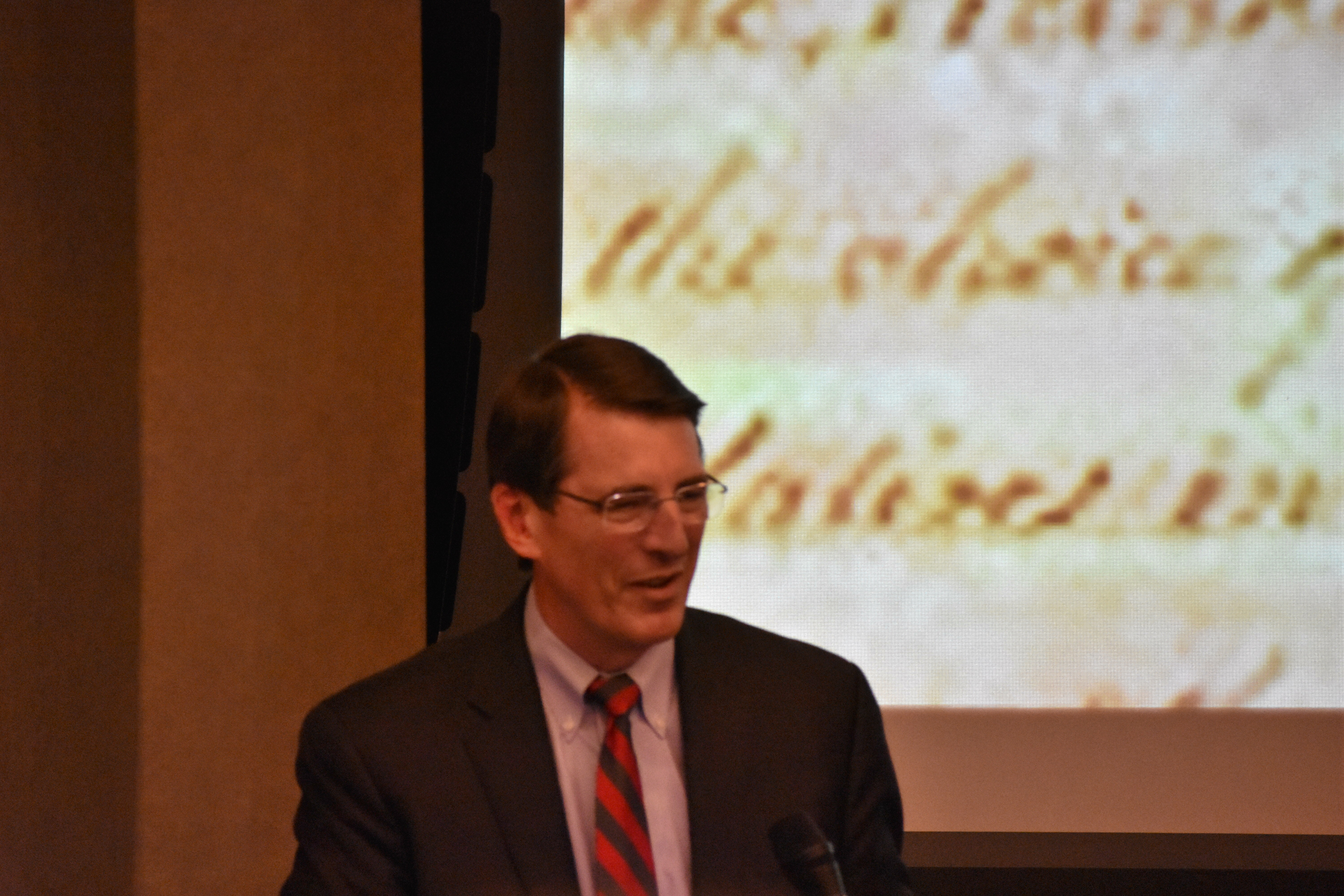By Maddie Matos A&E Editor mrmatos@owu.edu
The 14th Amendment received a new interpretation as Ohio Wesleyan University hosted a guest speaker for the annual Richard W. Smith Lecture series.
The speaker was Michael Les Benedict, who has a doctorate in history. Benedict is a specialist in constitutional and political issues regarding the Civil War era. Benedict works at Ohio State University as an emeritus professor.
The Smith lecture series is hosted by the Ohio Wesleyan department of history. The lecture is sponsored by the Richard W. Smith Endowed Fund in Civil War History, a fund that has been established in honor of former professor Richard W. Smith.
Smith taught at Ohio Wesleyan in the mid-20th century. He was popular among students, with several alumni returning to campus in support of the lecture and Smith.
Over 160 people attended the event, which was held in the Benes rooms in the Hamilton-Williams Campus Center.
University president Rock Jones and professor of history Barbara Terzian gave introductions prior to Benedicts presentation. Both Jones and Terzian expressed their enjoyment of the series and Benedict, with Terzian being more emotional.
“I have been really looking forward to this,” Terzian said. “He (Benedict) is my professor and Smith, my mentor.”
Benedict began his presentation with a discussion of how important the 14th Amendment is to history, and how it still impacts the United States today.
“It was a momentous event,” Benedict said. “It took a lot of pride on the southern states to agree to it.”
The amendment gives citizenship to all people born in the United States and allows the United States Congress to enforce this law. Through the passage of the amendment, African Americans and other minority groups became citizens and gained legal rights in society.
Benedict argued that the amendment established that it was the government’s job to defend rights.
“That is why we have government, to protect our rights,” Benedict said.
Benedict also discussed the role slavery had in the United States and the early days of the nation. Stating that the Constitution accommodated slavery and treated them like property, America was doomed to crack.
“The union could no longer endure,” Benedict said, quoting Abraham Lincoln.
Abolitionists were discriminated against, Benedict stated, with hundreds of protests and threats were made against them. The southern United States even went so far as to ban abolitionist literature and enforce the slave codes.
Benedict then discussed the beginnings of writing the amendment. He talked about early drafts of the document being proposed by different congressmen, including John Bingham, a representative from Ohio.
The presentation ended with a discussion of today’s implications the amendment holds. Benedict argued that the document made the United States Supreme Court more powerful than ever, an issue that continues today.
“Only now have we come to realize that the 14th amendment perhaps gives the court too much responsibility and gives us too little responsibility,” Benedict said.
The presentation closed with questions presented by the audience. Most questions were regarding the state of the Supreme Court in modern times and how citizens can have a voice in government. Benedict answered their question with a simple statement.
“Go vote,” Benedict said.
